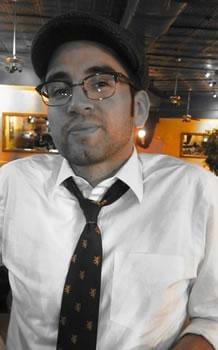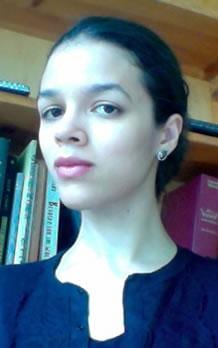2011 Provost’s Postdoctoral Fellows

Sarah Lynn Lopez
Faculty Mentor: Mauricio Tenorio. Department: History
Sarah Lynn Lopez received her Ph.D. in architectural and urban history in 2011 from the University of California, Berkeley. Her dissertation entitled “The Remittance Landscape: Space, Architecture and Society in Emigrant Mexico,” investigates the impact of migrant remittances—dollars earned in the U.S. and sent to families and communities in Mexico—on the architecture and landscape of rural Mexico. She also addresses the social and economic structures that support construction projects in Mexico, which are often spearheaded by migrant communities or hometown associations (HTAs) located in the U.S. Coupling demographic and economic data on remittances with ethnographic and architectural analysis of remittance landscapes, Sarah studies how macro processes interface with local dynamics to produce new social spaces in the U.S. and Mexico. The Bancroft Library Studies Award, the Institute for the Study of Social Change, and the UC-Mexus Dissertation Fellowship supported her research. At the University of Chicago, Sarah will work on turning her dissertation into a book manuscript. She will also begin new research on Mexican state funded architectures geared toward the consolidation of a migrant civil society in the United States.

Chris Zepeda-Millán
Faculty Mentor: Cathy Cohen. Department: Political Science
Chris Zepeda-Millán was born and raised in the East Los Angeles barrio of Boyle Heights and received his Ph.D. from the Department of Government at Cornell University. His research interests include Immigration, Social Movements, Labor, and Race & Ethnic Politics. Stated most broadly, Chris’ current work examines how marginalized groups attempt to influence public policy and electoral politics through political activism and mass mobilization. Challenging our traditional understanding of who takes part in contentious politics, as well as when and how large-scale collective action develops, titled Dignity’s Revolt: Threat, Identity, and Immigrant Mass Mobilization, his dissertation focuses on the emergence and dynamics of the historic 2006 immigrant rights protest-wave in different geographic (on the West Coast, East Coast, and U.S. South) and demographic (among different racial and ethnic groups) settings. He has received various fellowships and grants to fund his research including a Mellon Dissertation Fellowship, LaFaber Research Grant, Cornell Provost Fellowship, and Ford Foundation Dissertation Fellowship. As a Provost’s Career Enhancement Scholar in the Department of Political Science and Center for the Study of Race, Politics, and Culture at the University of Chicago, he will be working on turning his dissertation into a book length manuscript for publication at a university press. Chris is a scholar-activist and has participated in various local, national, and transnational social movements.

Nicole Wright
Faculty Mentor: Kenneth Warren. Department: English Language and Literature
Ever since happening upon Look Homeward, Angel and Mark Twain’s nonfiction at an impressionable age due to repeated stints in the time-out corner, which was conveniently located near a large bookcase, Nicole Wright has been fascinated by the ways in which novelists chart the divide between what Nabokov called “the surface of the present” and “the ooze of the past.” She received her B.A. from Stanford University, where she studied English and biology, and graduated from Yale University with a Ph.D. in English Language and Literature in May 2011. She completed additional coursework at the University of California, Berkeley and Oxford University. Her research has been supported by the Mellon Foundation, the Social Science Research Council, the Robert M. Leylan fund, the Woodrow Wilson Fellowship Foundation, the Beinecke Library, and the Lewis Walpole Library. Her dissertation is entitled ” ‘A Contractile Power’: Boundaries of Character in the British Novel, 1740-1830.” In this project, she examines character development, domestic and juridical “trials,” and the ways in which literature reflects changing social views regarding familial assumption of errant relatives’ criminal responsibility or liability. During her term as a PCEPS, she plans to expand this project while beginning new work on the depiction of interethnic interaction in utopian and dystopian fiction. Her interests include the novel (with particular focus on the eighteenth century and the Romantic period); literary portrayals of the history of science; law in literature; and African American literature. Her recent article, “Opening the ‘Phosphoric Envelope’: Scientific Appraisal, Domestic Spectacle, and (Un)’Reasonable Creatures’ in Maria Edgeworth’s Belinda” is forthcoming in Eighteenth-Century Fiction.
